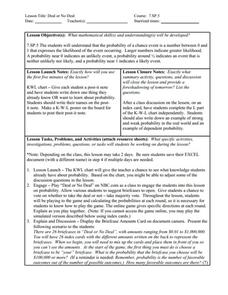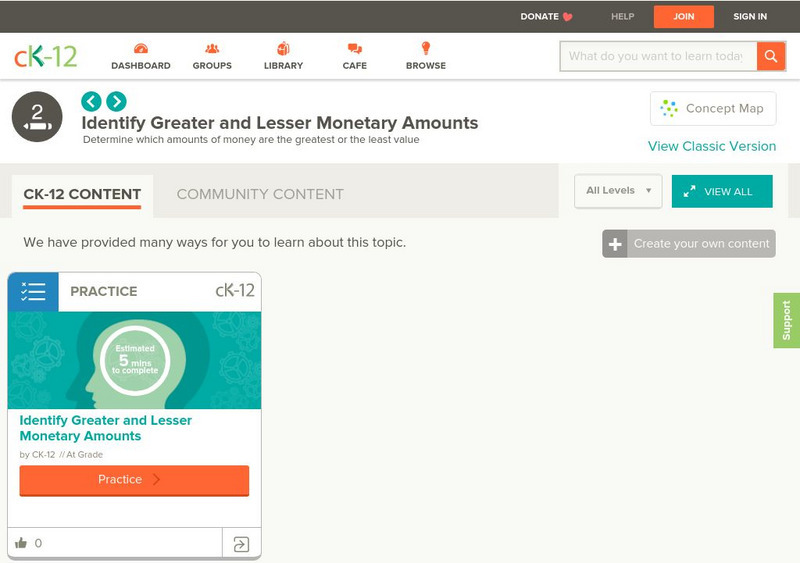Scholastic
Study Jams! Making Change
This dreamy resource has little ones computing the change on the purchase of an ice cream cone. Mia describes each step in two methods: subtraction of decimals and counting up from the sale price.
Curated OER
Deal or No Deal?
Using a game format, learners engage in an activity called Deal or No Deal. Taking real life scenarios involving items for sale, such as cereal boxes three for $5.00, they determine whether an example is a deal or not. This lesson plan...
Curated OER
Money
Students practice counting money. In this counting and comparing money lesson, students review the value of coins and use play money to count out five dollars. Students complete a worksheet to determine what items they could...
Curated OER
Greater Than - Less Than Lesson
Students practice comparing money with the greater than and less than symbol.
CK-12 Foundation
Ck 12: Math Grade 2
Browse resources related to second-grade math standards. Click on a topic for interactive lessons, videos, and extra practice.
CK-12 Foundation
Ck 12: Elem Math: Comparing Money in Word Problems
[Free Registration/Login may be required to access all resource tools.] Students practice solving word problems involving money.
NumberNut
Number Nut: More or Less: Comparing Values Less Than Thirty Cents
Compare two groups of coins and determine which group is worth more or less than the other. Money values are less than thirty cents. Words, not inequality signs, are used to compare the values. Score is kept as you go through activity.
NumberNut
Number Nut: Counting Coins With Values Under One Dollar
Choose the correct group of coins whose sum is the amount shown. Four groups are shown per questions. There are ten random questions.










